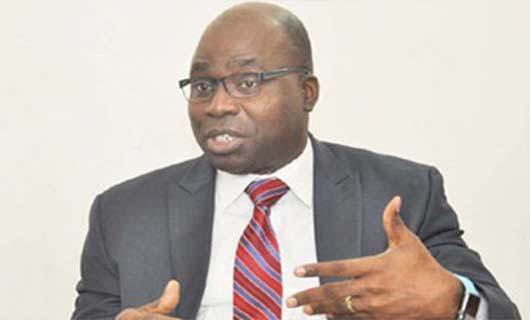News
Owasanoye: Corruption is fueled by community expectation of public officers

Bolaji Owasanoye, the head of the Independent Corrupt Practices and Other Related Offences Commission (ICPC), has stated that the pressure exerted by community members on public officeholders to provide financial advantages contributes to corruption in Nigeria.
Owasanoye made these remarks in Abuja during the national policy dialogue focused on corruption, social norms, and behavior change. The event was organized by the ICPC in collaboration with the Anti-Corruption Academy of Nigeria (ACAN) and received support from the MacArthur Foundation.
He further explained that numerous individuals anticipate government officials to bestow the benefits of their positions upon them, irrespective of whether these advantages result from corrupt activities. Owasanoye emphasized the relevance of the policy dialogue in the current period, given the precarious state of Nigeria’s foundational social values and norms.
He pointed out, “A number of transformations are indeed occurring throughout Nigerian society. However, what concerns me more is the widespread emergence of corruption-promoting social norms that span across ethnic and religious boundaries.”
Despite the broad cultural and religious consensus against corruption as a violation of societal values, a 2020 survey by ACAN-ICPC demonstrated that corrupt practices among public servants are facilitated by the community’s indifference towards the origins of corruption-related gains.
Owasanoye, the chairperson of ICPC, disclosed that a substantial 69 percent of surveyed public servants indicated that their communities would accept monetary gifts exceeding their annual salaries without questioning the source of those funds.
He clarified, “Hence, corruption is spurred by the community’s anticipation of individuals in positions of authority. A prevailing belief is that groups, networks, and communities expect officeholders to confer benefits linked to their positions on community members.”
This anticipation persists regardless of whether the benefits involve corrupt practices such as nepotism or stem from corruptly gained assets, like embezzlement. Owasanoye continued, “It’s also expected that government officials will enrich themselves or extend other advantages through their roles. Family members and community associates of public officials see no issue with these actions, even as they condemn identical practices in other communities – a situation where ‘it’s advantageous for us and not for others.'”
-
Society News4 years ago
Jamaican man beheads wife after finding out their 6 kids are not his
-
Society News6 years ago
EXCLUSIVE: The Complete Story of Dolapo Awosika, John Fashanu and Prophet Kasali Sex Mess
-
News5 years ago
Pastor Osagie Ize-Iyamu, His Membership Of Secret Cult, And Other Issues Touching On His Public Credentials Examined by Barr. PATRICK I. BIOSE
-
News5 years ago
BREAKING: Ajimobi’s daughter-in-law blast Gov. Makinde, says gov can’t surpass ex-Oyo gov
-
News5 years ago
BREAKING: 2 arrested as NAF begins investigations into Tolulope’s death
-
Crime5 years ago
Exclusive: Female Aide Fingered In Oko Oloyun’s Murder + Banking Transactions That Nailed Husband
-
News5 years ago
BREAKING: Police take over Edo House of Assembly as APC, Oshiomhole move to seize control
-
Society News5 years ago
The Rise and Fall of “Jumoke The Bread Seller”


You must be logged in to post a comment Login